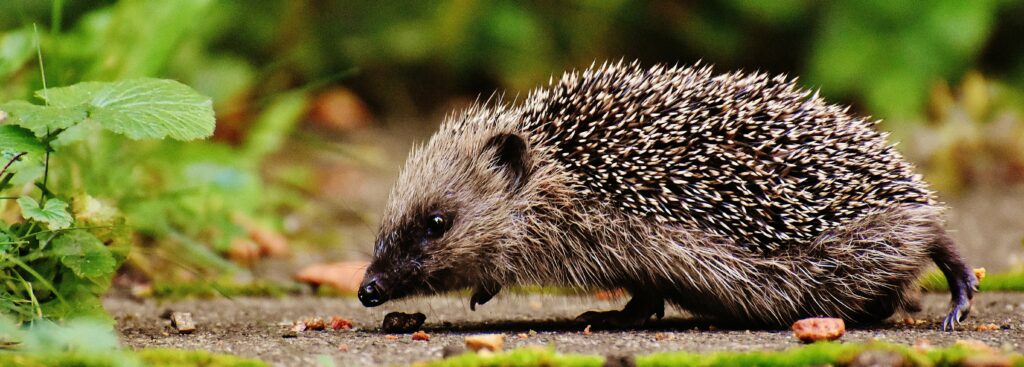
This week is National Hedgehog Week and we would like to tell you all about one of the most iconic British animals! This blog will go over what they eat, hibernation, the sad decline in hedgehogs and what we do to help.
Diet
Hedgehogs eat a variety of different things. Their main diet consists of invertebrates such as: worms, beetles, slugs, caterpillars, earwigs and millipedes. They also eat a variety of other insects. On more rare occasions, hedgehogs have been known to eat: frogs, baby birds, bird eggs and fruit they have found on the floor.
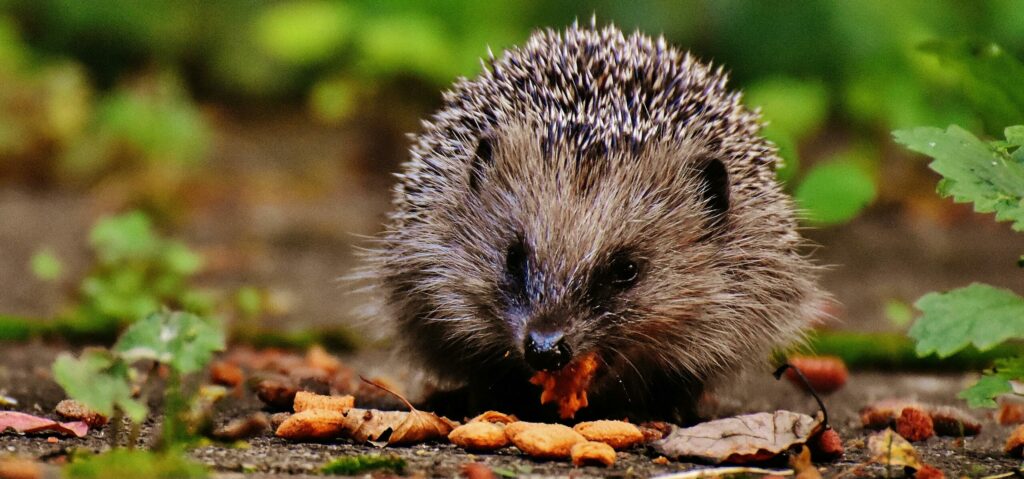
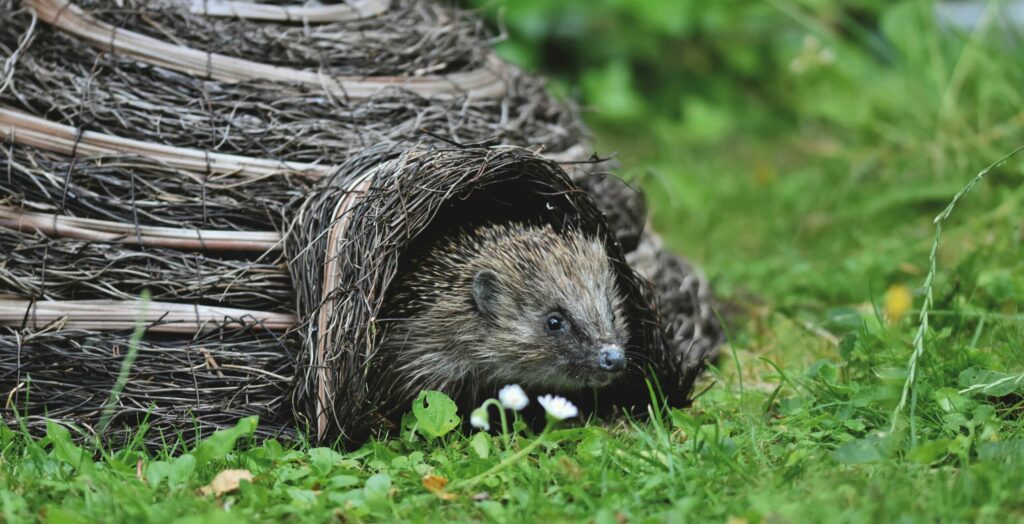
Hibernation
Hedgehog hibernation times can vary depending on weather. In milder years hedgehogs have been active as late as December though hibernation usually takes place between November and mid-March.
The nests they make are known as hibernaculum and they keep the hedgehogs warm when their body temperature drops. They will often wake up from hibernation to forage for food or move their nest before they go back to sleep.
How the centre helps hedgehogs
Hedgehogs are often brought to us after they are found injured or out in the day. The team here do their best to help rehabilitate and get them ready to be returned to the wild.
In our care they are kept in a warm, quiet shelter and are fed the correct amounts of hedgehog food (they can get fat very quickly, which results in them not being able to roll into a ball to protect themselves) . We disturb them as little as possible to make them feel safe.
Sadly hedgehogs are on a decline and are considered vulnerable to extinction in the UK. There are many reasons for this including: habitats being destroyed, garden hazards such as ponds and netting that trap hedgehogs easily, pesticides kill off their food and increased road traffic.
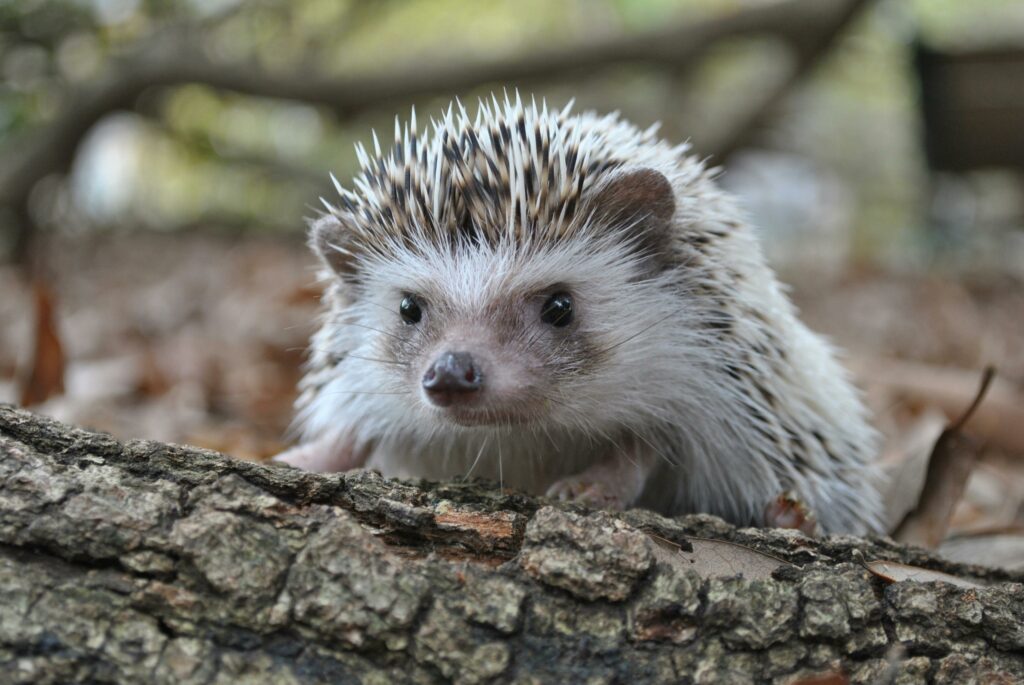
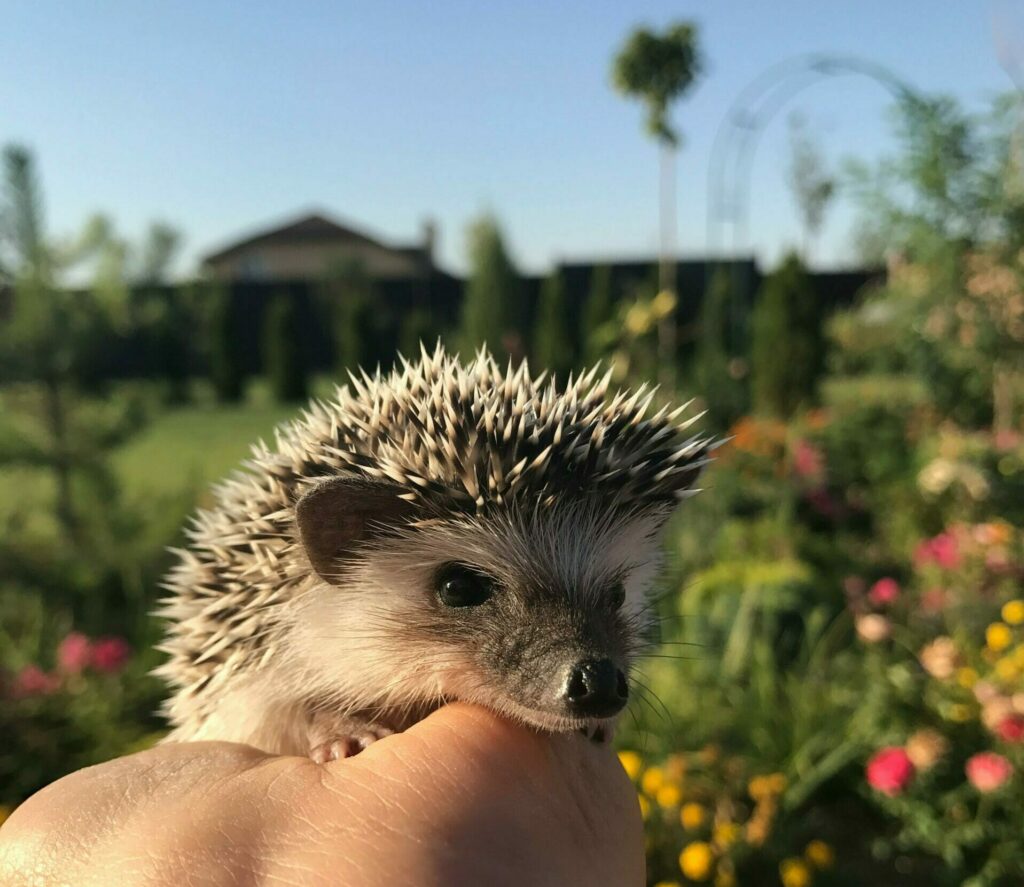
How you can help hedgehogs
There are many ways you can help hedgehogs. These include adding escape routes to ponds, putting down hedgehog houses and leaving food out for them.
If you have hedgehogs in your garden you can leave out food and water (more so in the summer with the warmer weather) and monitor them from a distance. Keep an eye out for signs of:
- pain or injury,
- flies or ticks on the hedgehog,
- maggots or fly eggs
- not rolling up
- staggering, wobbly, walking around in circles or lethargic.
Also if you are worried about a hedgehog and it is safe to do so, you can check their weight, if it is less than 300g, or if they are close to a road or if they are out in cold weather e.g. frosty, contact your local wildlife rescue.


